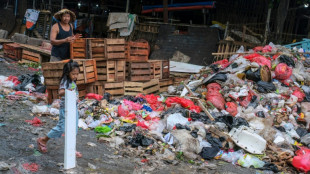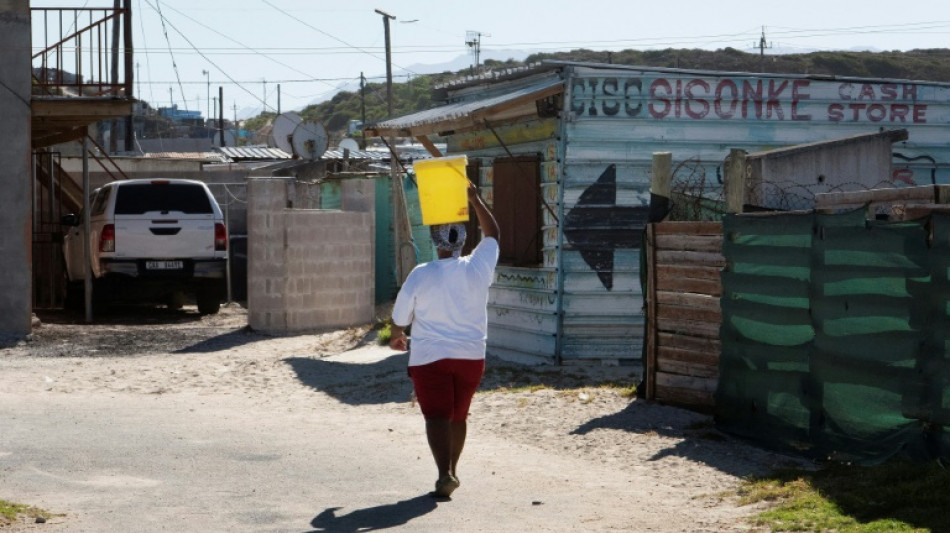
-
 Williams 'on the back foot' after missing Barcelona: Albon
Williams 'on the back foot' after missing Barcelona: Albon
-
Real Madrid submit evidence to UEFA in Vinicius racism probe

-
 Olympics rev up Milan's renewal but locals fear price to pay
Olympics rev up Milan's renewal but locals fear price to pay
-
Cardona Coll, Fatton win Olympic-debuting ski mountaineering sprint golds

-
 MSF will keep operating in Gaza 'as long as we can': mission head
MSF will keep operating in Gaza 'as long as we can': mission head
-
Russian Filippov wins first medal at Milan-Cortina Games for individual neutral athletes

-
 Italian Milan takes sprint honours at UAE Tour
Italian Milan takes sprint honours at UAE Tour
-
Dozens killed in jihadist attacks in northwest Nigeria

-
 Zimbabwe unbeaten in T20 World Cup after six-wicket Sri Lanka win
Zimbabwe unbeaten in T20 World Cup after six-wicket Sri Lanka win
-
Postecoglou admits taking Nottingham Forest post a 'bad decision'

-
 Switzerland's Fatton wins women's ski mountaineering sprint on Olympic debut
Switzerland's Fatton wins women's ski mountaineering sprint on Olympic debut
-
Kinghorn, Van der Merwe return for Scotland against Six Nations strugglers Wales

-
 Repsol says could boost Venezuela oil output over 50% in 12 months
Repsol says could boost Venezuela oil output over 50% in 12 months
-
UN says Israeli actions raise 'ethnic cleansing' fears in West Bank, Gaza

-
 Arteta tells faltering leaders Arsenal to harness Wolves 'pain' against Spurs
Arteta tells faltering leaders Arsenal to harness Wolves 'pain' against Spurs
-
Crowley gets nod for Irish as Prendergast drops out

-
 Unbeaten Swiss to meet Great Britain in Olympic men's curling semis
Unbeaten Swiss to meet Great Britain in Olympic men's curling semis
-
UK police arrest ex-prince Andrew on suspicion of misconduct

-
 Oil extends gains on US-Iran tensions, Europe stocks slide
Oil extends gains on US-Iran tensions, Europe stocks slide
-
Former prince Andrew, a historic downfall

-
 Sri Lanka post 178-7 against Zimbabwe ahead of T20 Super Eights
Sri Lanka post 178-7 against Zimbabwe ahead of T20 Super Eights
-
OpenAI's Altman tells leaders regulation 'urgently' needed
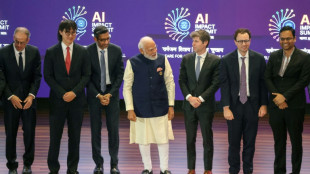
-
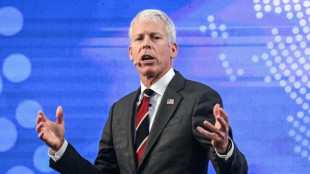 US renews threat to leave IEA
US renews threat to leave IEA
-
Liverpool boss Slot says Isak in 'final stages of rehab'
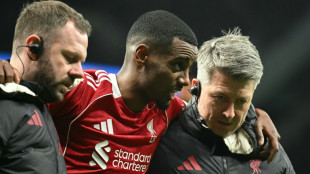
-
 Airbus ready to build two new European fighter jets if 'customers' ask
Airbus ready to build two new European fighter jets if 'customers' ask
-
UN Sudan probe finds 'hallmarks of genocide' in El-Fasher
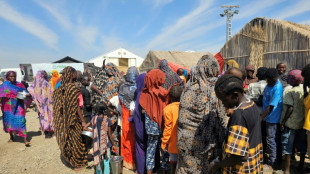
-
 Costelow starts, Hamer-Webb makes Wales debut in Six Nations clash with Scotland
Costelow starts, Hamer-Webb makes Wales debut in Six Nations clash with Scotland
-
Facing US warnings, Iran defends right to nuclear enrichment

-
 Ex-South Korea leader Yoon gets life in prison for insurrection
Ex-South Korea leader Yoon gets life in prison for insurrection
-
OpenAI's Altman says at India summit regulation 'urgently' needed
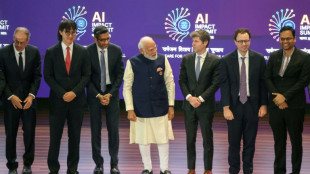
-
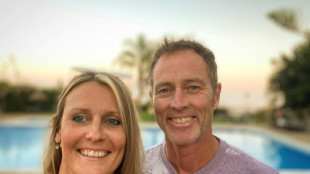 British couple held in Iran sentenced to 10 years
British couple held in Iran sentenced to 10 years
-
West Indies ease past Italy to tune up for T20 Super Eights

-
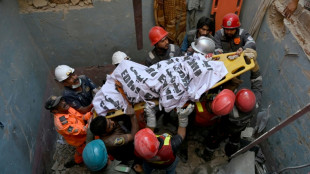 At least 16 killed after building collapses in Pakistan following blast
At least 16 killed after building collapses in Pakistan following blast
-
Summit photo op fails to unite AI startup rivals
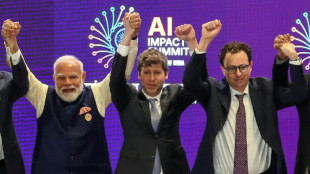
-
 OpenAI's Altman says world 'urgently' needs AI regulation
OpenAI's Altman says world 'urgently' needs AI regulation
-
Horror comics boom in our age of anxiety

-
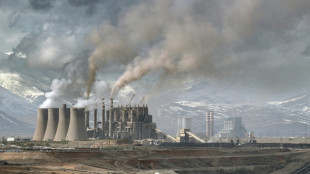 Turkey fires up coal pollution even as it hosts COP31
Turkey fires up coal pollution even as it hosts COP31
-
London fashion week opens with tribute to one of its greats

-
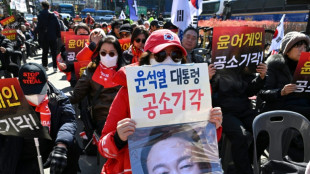 Ex-S.Korea leader Yoon gets life in prison for insurrection
Ex-S.Korea leader Yoon gets life in prison for insurrection
-
Pea soup, veggie mash contest warms up Dutch winter

-
 South Korea's Yoon: from rising star to jailed ex-president
South Korea's Yoon: from rising star to jailed ex-president
-
Private companies seek to import fuel amid Cuban energy crisis
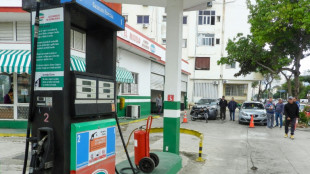
-
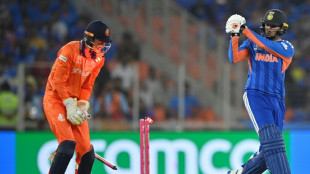 India search for 'perfect game' as South Africa loom in Super Eights
India search for 'perfect game' as South Africa loom in Super Eights
-
India's Modi calls for inclusive tech at AI summit
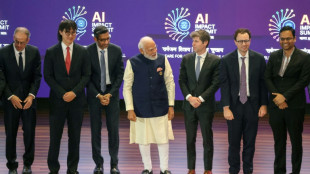
-
 Airbus planning record commercial aircraft deliveries in 2026
Airbus planning record commercial aircraft deliveries in 2026
-
Elections under fire: Colombia endures deadliest campaign in decades
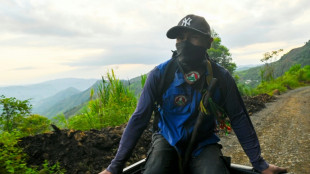
-
 Traore backs 'hungry' Italy against France in Six Nations
Traore backs 'hungry' Italy against France in Six Nations
-
All-rounder Curran brings stuttering England to life at the death

-
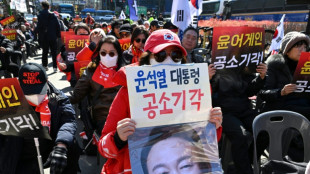 South Korea court weighs death sentence for ex-president Yoon
South Korea court weighs death sentence for ex-president Yoon
-
Tech chiefs address India AI summit as Gates cancels


Sparkling pools, empty taps: Cape Town's stark water divide
On Cape Town's beaches, swimmers shower off sand from their feet. Irrigation pipes water the region's famed vineyards. And Shadrack Mogress fumes as he fills a barrel with water so he can flush his toilet.
It's been four years since South Africa's tourist capital nearly ran dry, during a drought that left the city limping towards a "Day Zero" when all the pipes would empty.
Now water flows liberally -- but not for everyone.
South Africa is the most unequal country in the world, with race playing a determining factor, a World Bank report said last week.
The taps at Mogress's house in the township of Khayelitsha run only intermittently, and rarely with full pressure.
So at 56 years old, he wakes up early to fill up a barrel while the water is running, so that his household of six can drink and wash all day.
“We also need to take from that water to use the toilet, which is an insult at the end of the day," Mogress said.
“We have toilets here. We have showers here. We cannot use those," he said. "Our children go to school in the morning at about 6:00 a.m. Sometimes there's no water at that time.”
Mogress said he contacted city officials several times about the issues but has not heard back.
“We're sitting within the middle of a pandemic here, and we do not even have water to wash our hands,” he said.
City trucks that deliver water to the community are unreliable, Sandile Zatu, a 45-year-old resident said.
"We have no choice but to wake up in the morning and try to fill our bucket as much as possible," he added.
- Worse than ‘Day Zero’ -
During the drought, city-wide efforts to save water created a sense of shared purpose. Everyone avoided flushing toilets, gave up on watering plants, and let their cars sit dirty for months.
"At that time, we knew that we were sitting with a problem," Mogress said. "But it is actually worse, because we do have water and we know that."
Swimming pools in Cape Town's posh suburbs do have water, but the city estimates that about 31 neighbourhoods have no access to clean water.
That includes sprawling districts filled with shacks, but also working-class neighbourhoods.
Ironically, Covid brought better water supplies to some areas.
The state of disaster that empowered lockdown measures also allowed authorities to deliver more water to encourage better washing.
If the state of disaster is called off, the city will lose funding to deliver water, city water official Zahid Badroodien said.
- Future droughts -
Badroodien said the city was investing millions of rand in the aging water infrastructure, adding that a Day Zero was "inevitable".
But it is harder for the city to provide reliable water services in some areas due to "funding being tied up in existing projects to try and establish services in existing communities."
"At the same time, the safety of our officials becomes an issue in these areas, where I know for a fact that our tankers have been hijacked, our officials have been hijacked, they've been held up at gunpoint," he said.
Jo Barnes, a water expert at Stellenbosch University, said the city has shown poor planning for future droughts.
"To not plan for the next drought -- which may be around the corner -- sounds like managerial suicide to me," she said.
"We're getting more and more people, and we have the same volume of water. So, unless we do something magic, we're going to run into the same problem again."
L.Mason--AMWN



